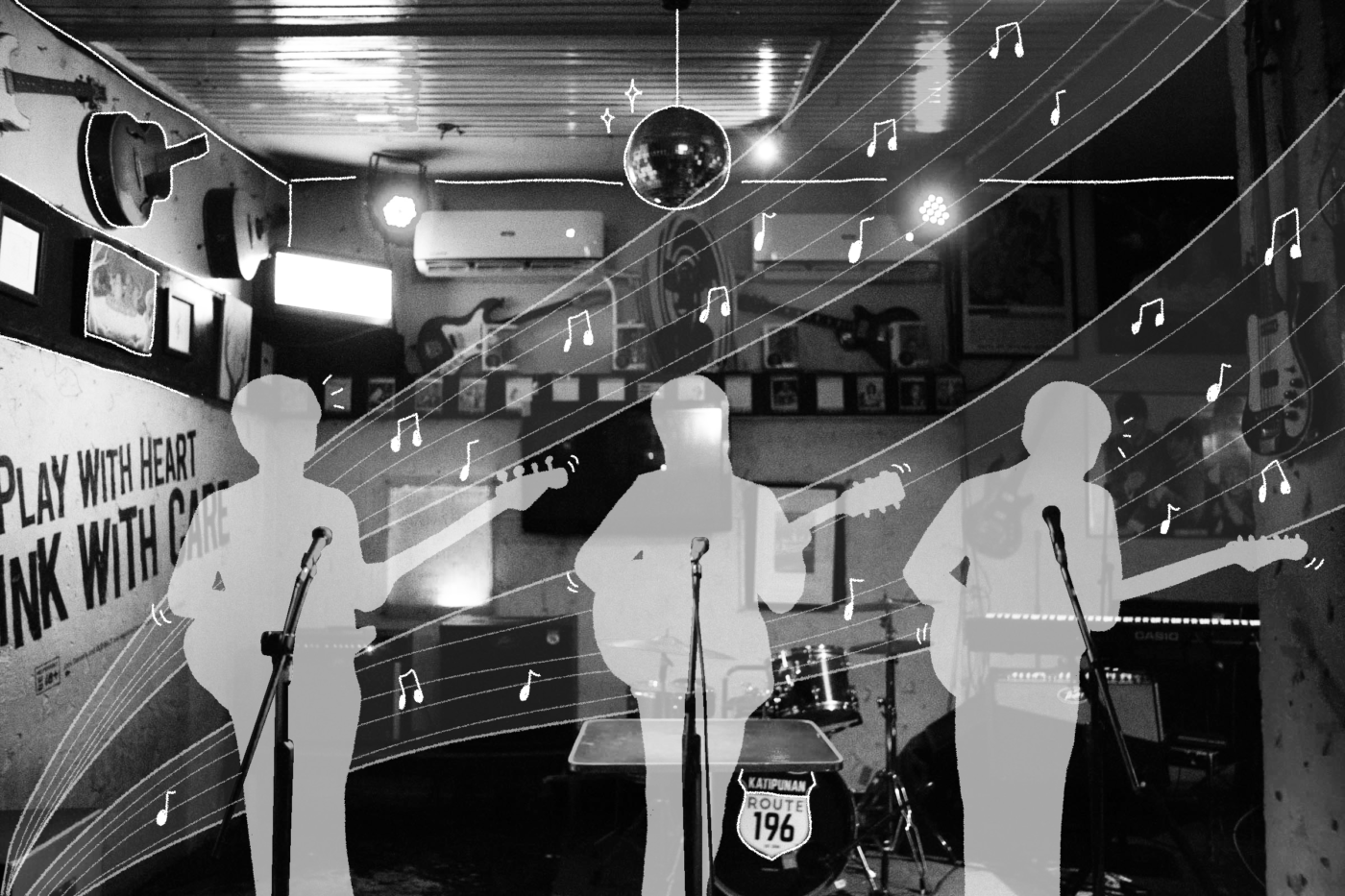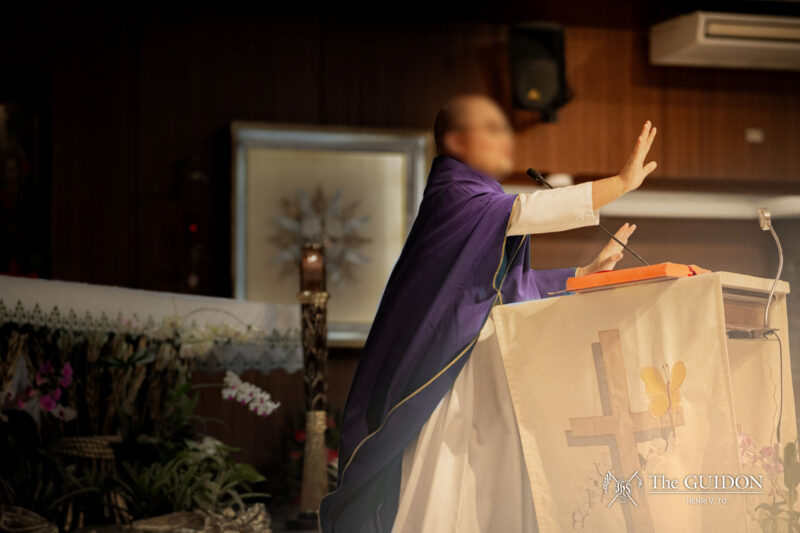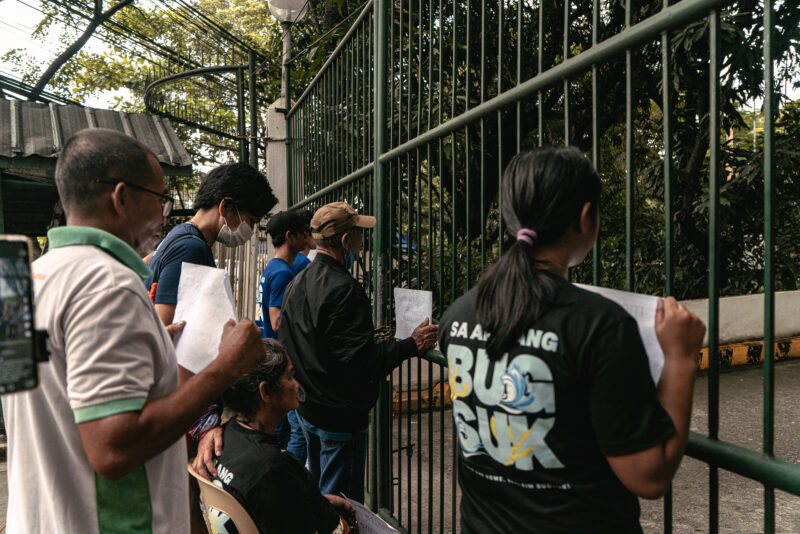THEY SAY that along Katipunan Extension, one could hear the faint sound of music reverberate throughout the highway in the wee hours of the night. Today, the music plays a little quieter, though that does not mean it is silent.
In 2007, a resto-bar named Inihaw Republic rebranded and became what is now known as an invaluable piece of live music history. Route—as its regulars call it—has housed some of the biggest artists to date, such as Itchyworms, Sugarfree, IV of Spades, and Ben&Ben. What started as a resto-bar along Katipunan Avenue eventually turned into a training ground for artists, and a home for the local music scene.
As the COVID-19 pandemic took its toll, Route 196 permanently closed its doors on August 23. The difficult decision was made remotely in the course of a few days, after several video calls and careful deliberation by the owners. “We [wanted] to stop the bleeding,” says co-owner Kelvin Yu. In the wake of its closing, Route 196 was mourned by artists and fans alike. For many, they don’t just tell stories of Route—they tell stories of home.
A certain romance
For Anzo Pineda, vocalist and bassist of punk band Tokyo Escape, a part of the music scene has died with Route’s closing. The moments he spent there helped shape the musician he is today.
He looks back on when he and his friends would fantasize about performing in Route. “[Route] just had this mystique around it… Somebody would just bring up a [random] chord progression and say, ‘Oh dude, imagine we play that at Route and everyone just starts jumping.’ It’s that kind of thing.”
In 2019, Pineda and his band finally fulfilled this dream and stepped onto the Route stage as performers. He recalls how a peculiar ad on Facebook caught the band’s attention. “It was by a weird [production company]–I think it was Chocolatey Productions or something like that. [It said] ‘No pay, just sign up and play.’ So we [said, ‘Fuck it,’ and] signed up.”
At 2 AM on a weekday, Tokyo Escape performed their second gig at Route with 16 people in attendance. What ensued was, according to Pineda, “the gig life at its purest form.”
The crowd thinned as the night went on. By the time they were onstage, only three or four other bands stayed. However, this did not deter Pineda and his band, as the artists they once watched were the same ones cheering them on. “Looking back, that’s where I learned the [concept of] ‘We’re musicians. We stick together.’ It was just one gig, but that was all I needed. It’s such a blessing, it helped us grow up as musicians,” he says.
Getting the chance to perform at Route was not as simple for others. Aspiring solo musician and singer-songwriter Jakey Campos describes performing there as his end goal. “Ever since [I watched my first gig], it’s been my dream to perform in Route 196…and seeing it close down really tore me apart.”
Campos had only gone to Route as a fan. Back then, he would chase gigs despite a busy schedule and the distance from his home to Katipunan. Despite the roadblocks, Campos decided that it would be worth it if Route gave him an unforgettable first live show experience. From then on, the venue became his escape—a place where he feels that his time is always well spent. Although he could never stay for an entire show, Campos tried to stay for as long as possible. “I feel kinda empty knowing I wasn’t able to go as much as I wanted to,” he admits.
For Campos, Route 196’s legacy will always motivate him to be a better artist. “That ideal dream of me playing my own music there in Route 196 may not happen for a while, but it can happen in other ways and I feel like that’s what’s keeping me going right now.”
While Route motivates and forms new musicians, it was also a home to many veteran artists. Singer-songwriter Johnoy Danao had seen Route throughout its lifetime in Katipunan—he had been playing at the venue since the previous owner, JP Balboa, first asked him to perform 10 years ago. “[Route gave me a] second chance at music, [at] creating music,” he shares. “Parang naging bahay ko siya for 10 years, from my first solo album hanggang ngayon (It’s as if it became my home for 10 years, from my first solo album until now).”
Many memorable moments in Danao’s career happened in Route: From launching his first solo album Dapithapon, to seeing Ben&Ben perform their first live gig after helping them produce their first album. For the singer-songwriter, Route was a place for firsts and second chances.
Danao regrets Route’s closure, as it still had the potential to develop many more artists. He shares that, at Route, renowned and idolized artists would be the ones to cheer the newer bands on. “They’ve given a lot of opportunities para sa mga banda. They’ve given a space for bands and artists to just do their thing.”
Paying it forward
The impact Route would make on the local music scene was the last thing on the owners’ minds, according to Route 196 co-owner and Itchyworms bassist Kelvin Yu. Shocked at the public response towards Route’s closure, Yu shares, “Para sa amin, it was as simple as paying it forward, and apparently we made an impact.”
Those paying it forward included Yu and his partners Jugs, Ted, Saul, Waco, and Nicole, who have been running the bar since the first owners turned it over to them in the mid-2010s. Yu attributes the venue’s success partially to the staff—who have worked for Route 196 since day one—and to the chemistry between the business partners. “It was fun kasi lahat kaming partners, we were friends… Everyone was there not to make money, but to pay it forward to the [music] scene, to have fun,” he shares.
Throughout its tenure, Route 196 was a crucial bridge between generations of artists and fans. Its success traces back to owners who continue to pay it forward, keeping the atmosphere of support and openness alive within Route’s walls. If Route should ever open its doors again, Yu says, “Never say never, but siguro we’ll let the younger groups run it. We can pass the torch on to them when the time comes.”
Route’s reopening is always welcomed by the music scene, no matter when it might re-emerge. Music is intergenerational—and Route facilitated its exchange. New musicians had taken the stage inspired by the generation before them, while their idols stood by and supported them from the sidelines. The music scene is a family built on support, and Route was their home.With live shows put on hold, musicians are trying to keep the music playing from the safety of their own homes. For now, the spirit of Route 196 will always remain. Despite its closure, Route will live on in the artists it once housed and the culture it has helped shape.







